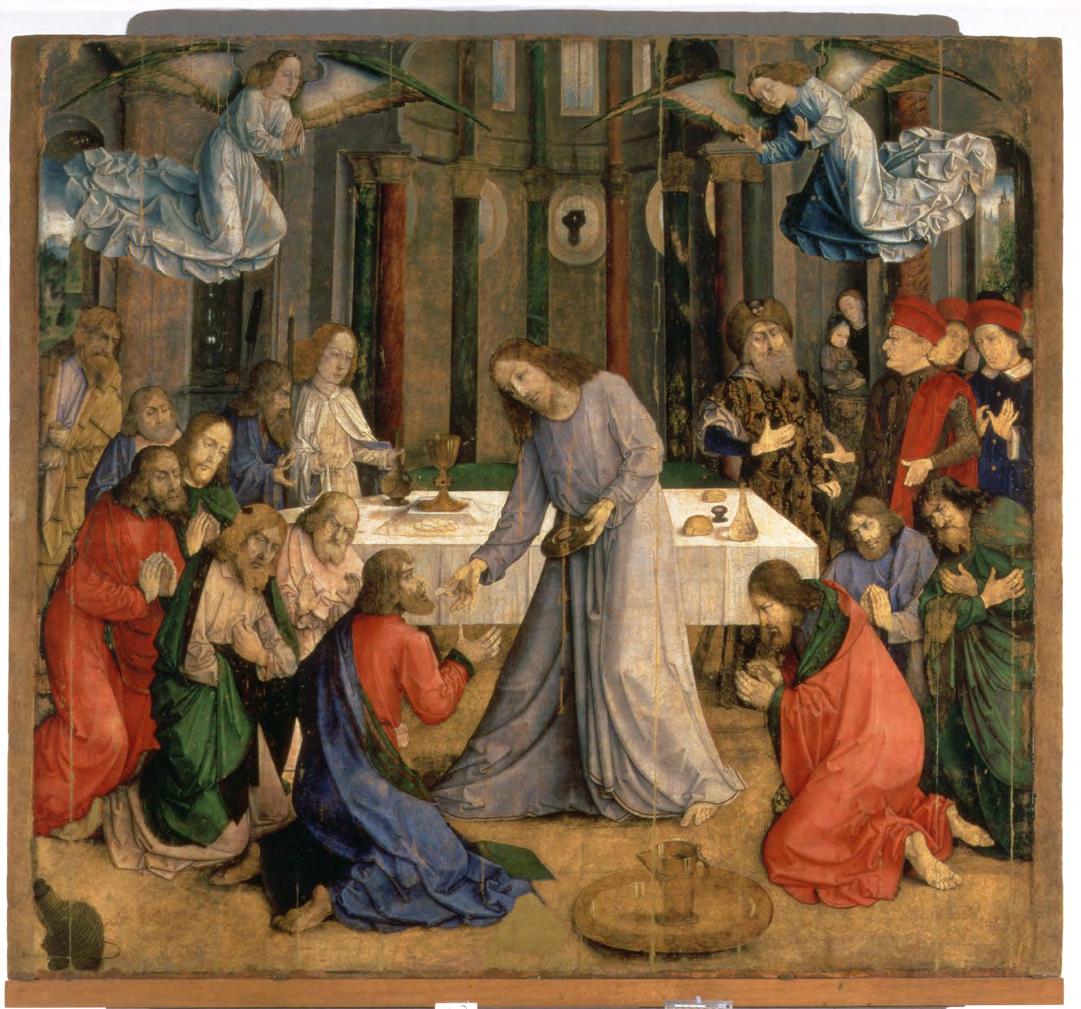
6 minute read
The most precious treasure
Santa Maria Maggiore in Rome
Alberto Carosa on a recent tribute to the memory of Antonio Ghislieri, Pope Saint Pius V
This year marks the 450th anniversary of the death of Pope Saint Pius V, who died on 1 May, 1572. Among the most significant tributes to the memory of this great Pope, was a Solemn Mass celebrated by Mgr Marco Agostini of the Secretariat of State and Papal Master of Ceremonies in the Sistine Chapel of Santa Maria Maggiore in Rome on 30 April this year. It was here in Santa Maria Maggiore that Pius’s mortal remains were laid to rest. Here are the highlights of Mgr Marco Agostini’s homily:
Laudetur Jesus Christus (Praised be Jesus Christ)! At Vespers on 1 May, 1572, 450 years ago, Antonio Ghislieri, Pope Saint Pius V, rendered his soul to God. He left these words to the cardinals at his bedside: "I commend you the Holy Church that I have loved so much! Do your best to elect a zealous successor who seeks nothing but the glory of the Saviour and has no other desire than the good of Christianity and the honour of the Apostolic See.”
These words come from a distant past, a time when one really believed in eternal life and spent one’s earthly life frequently thinking of the final point of one’s existence, a moment in which each of us must give an account to God of our thoughts, words, works and omissions.
Love for the Church, the glory of the Saviour, the honor of the Apostolic See, the good of Christians, the glory of God and the salvation of souls – these were the absolute concerns of a pontificate which lasted six years and 114 days, all aimed at the faithful implementation of the resolutions of the newly-concluded Tridentine Council, but aimed also at defending Christianity from the Ottoman danger.
Much should be remembered of St Pius V, and with gratitude. He should be remembered for his commitment to the Holy League, for victory at the Battle of Lepanto in 1571, where the Holy League defeated the Ottoman empire, and for the reform project of the Roman Curia with the revision of the Corpus Iuris Canonici.
The fundamental element of his actions as man and pope was his experienced and investigated Faith, which is preserved in the Sacred Liturgy. The publication of the Roman Catechism, the Missale Romanum and the Breviarium are the reflection of a commitment that deserves to be rememberd forever.
Reflecting on the Ceremonies of the Holy Church, of proclaiming the Faith and of Evangelization as Saint Pius V understood them, seems to go against current fashion. But Saint Pius considered the Holy Eucharist, the real presence of Our Lord Jesus Christ in Body, Blood, Soul and Divinity, the most precious treasure in the world.
In the Holy Mass he recognized the whole life of the Saviour; in it he contemplated, adored and united himself with Jesus. He also considered the Holy Mass as the highest means to illustrate the life of Christ. What happens in the Mass is the symbolic implementation of the whole History of Salvation, from ruin to redemption, from original sin to the birth of Jesus, to his sacrifice and resurrection up to the birth of the Church. In the Holy Scriptures and in the Sacred Liturgy, which with its ceremonies is a casket of Truth and a bulwark against heresy, the Holy Pontiff identified the basis for the argued refutation of heresies.
In the wake of Tradition, St Pius V traced the origin of Christian ceremonies, that is the actions of the Holy Liturgy, to the explicit will of the Saviour at the Last Supper and to the precise act of the Saviour described in verses 30-31 of chapter XXIV of the Gospel of Luke, where the Evangelist says: ‘Cognoverunt eum in fractione panis [the disciples of Emmaus] knew Christ when He broke the bread’. It is interesting to note that the Evangelist does not say, ‘they knew him in the bread’, but ‘in the breaking of the bread’. The observation is formidable since it shows us how much virtue is offered in the holy ceremonies. What is the difference between bread and breaking bread? That bread is not a ceremony, but breaking is. This is the strength of the ceremonies in the soul of christians, such a great strength that enables us to know God.
Pius saw that our salvation lies in knowing God and if the sacred ceremonies, the sacred liturgy, make us know God, then we understand them, because there is nothing more important and more useful for salvation than knowing God. As Jesus says in the Gospel of John: ‘Haec est vita aeterna, ut congnoscant te solum verum Deum et quem misisti Jesum Christum, [This is eternal life, that they may know Thee, the only true God, and Jesus Christ whom Thou hast sent]’ (17:3). Man's eternal salvation consists in knowing God.
The Gospel of Luke establishes the vital necessity of the sacred liturgy and the great utility of sacred ceremonies for christians. Therefore, not only the strength, power and usefulness of sacred ceremonies, but also their dignity and beauty. It was Christ ‘the most beautiful of the sons of man’ who broke the bread (Ps 45:3), so Jesus the Son of God is the initiator of the ceremonies. Sacred ceremonies derive dignity from Christ the Man-God. Whoever loves Christ greatly will also love sacred ceremonies. Those who have little regard for Christ will also have little regard for sacred ceremonies. Those who do not appreciate the former, neither will they appreciate the latter. Whoever makes fun of the former, will also make fun of the latter. It was the reason why Saint Pius V applied himself with faith, intelligence and heart to the work of restoring the sacred liturgy, well aware that he was defending the dogma from heretics who often oppose ecclesiastical ceremonies, humiliating and falsifying, them. He who loved the Church so much wanted her to express in the best possible way his love for Christ, whose glory he always sought, taking care to preserve and transmit what Christ had instituted: here lies the honor of the Apostolic See and of Christianity.
Now, 450 years after the death of a reformer who reformed the Church by reforming himself, we should appreciate his legacy and revive his spirit; we must rediscover the spiritual vitality that alone fosters the impetus for a new evangelization that enhances the supernatural vision, that recognizes and unmasks contemporary deceptions. To the new generations the way to heaven can only be indicated by the gospel, by sound doctrine and by the Saints – including demanding ones such as St Pius V! Laudetur Jesus Christus!

Saint Pius V applied himself with faith, intelligence and heart to the work of restoring the sacred liturgy









